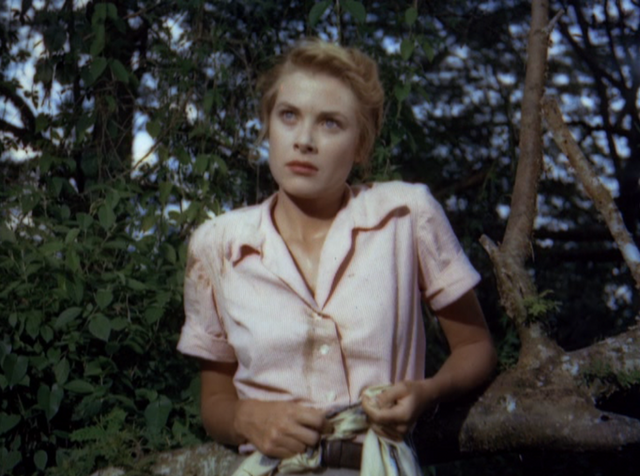Gloria Stuart received her sole Oscar nomination for her performance as Rose DeWitt Bukater in James Cameron's Titanic. In my opinion, movies don't get much better than Titanic. It's a piece of pure cinematic bliss, where I sort of put away my critical mind for 3 hours and embrace everything that James Cameron puts on screen. It's a film that gets my emotions going every single time, and the final scene where Rose walks up the staircase to meet Jack gets me everytime--and I'm the type of person who usual scoffs and rolls his eyes at saccharine schmaltzy fare like The Shawshank Redemption. Yes, writing has never been James Cameron's strong suit and broad performances from Billy Zane, Kathy Bates, and to some extent Leonardo DiCaprio don't help the criticism. But to me the film transcends these limitations and is just a great time at the movies.
The parts of the film that feature Gloria Stuart are the slowest, featuring a team of treasure hunters attempting to find the "Heart of the Ocean" who Rose contacts after they find a picture of her on board the sunken wreckage. Her role is essentially that of a glorified narrator, as the film flashes back to her time on board the ship, where Rose is played by Kate Winslet. Despite her short amount of screen time, Stuart has to serve as the emotional anchor of the film that convincingly connects herself and Kate Winslet while evoking memories her character has of the sinking of the ship. In this goal, she succeeds wonderfully. As you see this older Rose looking through some of her things that were recovered by the divers, you see the memories rushing back through Stuart's eyes and as the treasure hunters realize that this woman is the real deal, so do you. Her and Winslet have a similar spark and you can really feel that they are the same woman, despite physical differences.
It's hard to praise Stuart's performance fully because she does so little. Her narrations throughout the film often stick out as being in the wrong spot, even if her line readings are perfectly adequate. At the time the film was made, Stuart was only 87 years old playing a woman who was 100 years old, but that never quite comes off on screen. Yes, she seems old but you wouldn't guess that this woman is 100 years old, she was much to spry in the film. I don't really have any particularly harsh criticisms of this performance because there isn't much to go off of. She really exemplifies the title of this category because she is meant to support the main story, and does so beautifully. Even with the lack of screentime, Gloria Stuart's Rose is almost as memorable as Kate's and she absolutely deserved this nomination. 4/5 Thelmas.
































